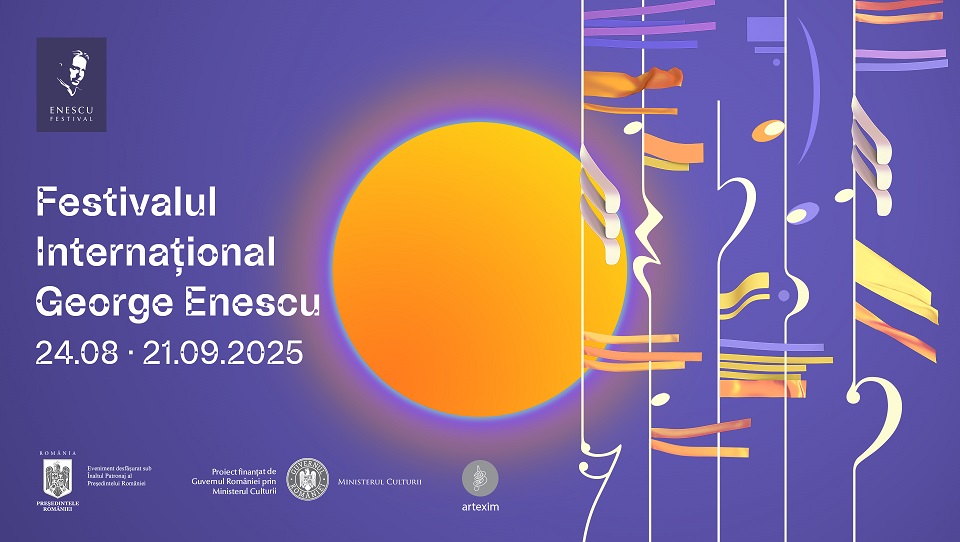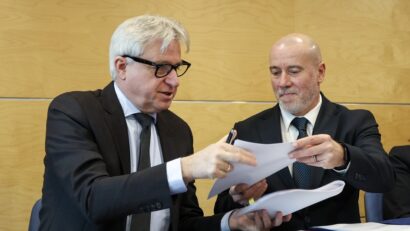George Enescu Festival came to an end
For over a month, the George Enescu Festival brought together in Bucharest and other cities across Romania some of the world’s best classical musicians.

Daniela Budu, 22.09.2025, 14:00
The 27th edition of the George Enescu Festival, named after Romania’s best-known composer and first held in 1958, came to an end on Sunday with a performance by the Royal Concertgebouw Orchestra from The Netherlands, one of the world’s most renowned orchestras. The final day of the festival also featured a show by Radio Romania’s Big Band. The band’s conductor Simona Strungaru spoke about the festival’s quality and new openness:
“George Enescu was such a complex personality and so unique for his times and a great raw model for all of us who studied music and who want to create something. He was very courageous, he worked ceaselessly and restlessly and I believe this edition of the festival takes the Enescu spirit further, not just by playing his works in almost every performance, but owing to the organisers’ appetite for new projects and collaborations.”
The 29 days of the festival featured over 90 concerts and performances. World famous musicians were among the 4,000 Romanian and international musicians who took part. Violinist Anne-Sophie Mutter was awarded the festival’s excellence award. The Romanian conductor Cristian Măcelaru won the award in the symphonic music category for his 2025 album containing works by George Enescu. The music director of the National Orchestra of France, he is also the artistic director of the George Enescu festival.
The Royal Philharmonic Orchestra from London and the Orchestra of the National Academy of Santa Cecilia in Rome are among the many orchestras to take part in the festival, under the baton of famous conductors. This year, the festival targeted a new public, highlighting 21st century composers and composers from Eastern Europe, including the Freedom Orchestra from Ukraine. The big orchestra performances were held, as usual, in the Palace Hall and the Romanian Athenaeum in Bucharest, while others were hosted by unconventional venues, in clubs and on the street, in Bucharest and other cities.
“I would like everyone to understand the importance that the arts and culture play in society. An investment in the arts and culture is a long-term investment, not in us, but in the generations to come”, conductor Cristian Măcelaru told Agerpres news agency.
Held every two years, the festival again benefited from the support of the Romanian state, with the ministry of culture covering 90% of its cost, amounting to some 15 million euros.






























